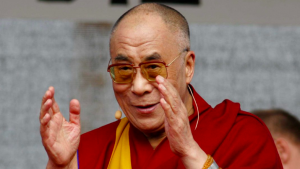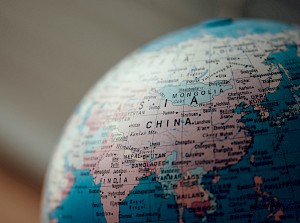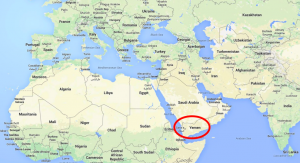The Russian Invasion of Ukraine: A Global Chess Match
March 17, 2022“You may well have the better claim, but I have the larger army.”
—Renly Baratheon, Game of Thrones
Russia’s war with Ukraine is the first conflict since the end of the Cold War to test the limits of the balance of power among the world’s three largest military powers. By now, most of us are aware what Russia is trying to achieve; how the US and NATO are responding and how China is trying to balance its own ambitions and its relationship with Russia, while simultaneously insisting its neutrality on the conflict. The rest of the world, although saddened by the war, feels forced to temper its outrage at Russia to protect various self-interests. Realpolitik is the principle most countries adhere to, often trumping ideology. In other words, do what you need to do to serve your own interests despite what you may believe or not believe.
This real-world jockeying and juggling were especially evident during the recent UN General Assembly vote to condemn Russia for its unprovoked invasion of Ukraine, as member countries struggled between doing the right thing, by sanctioning Russia while simultaneously looking out for their own interests. One would think that condemning Russia for its senseless war against Ukraine would be a no-brainer. But it’s not that simple.
The International Crisis Group (of which I am co-chair) recently published a report which goes into great detail explaining the reasons why certain countries have been reluctant to condemn Russia. I will try to summarize the findings of our report succinctly.
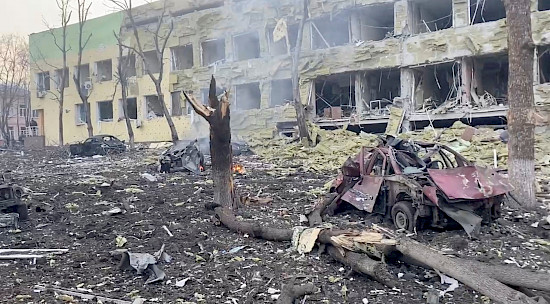 India, as the world’s most populous democracy, is playing a delicate balancing act. It has a long historical relationship with Russia and benefits from both Russian weapons imports and fertilizers for its massive agricultural sector. However, because it fears China’s growing military power and has its own border dispute with them, it joined with the “quad”- a diplomatic and military alliance of the US, Japan, and Australia. Additionally, India has anxiety that perhaps Russia, China and its long-nuclear-armed nemesis, Pakistan, will come together in some future alliance.
India, as the world’s most populous democracy, is playing a delicate balancing act. It has a long historical relationship with Russia and benefits from both Russian weapons imports and fertilizers for its massive agricultural sector. However, because it fears China’s growing military power and has its own border dispute with them, it joined with the “quad”- a diplomatic and military alliance of the US, Japan, and Australia. Additionally, India has anxiety that perhaps Russia, China and its long-nuclear-armed nemesis, Pakistan, will come together in some future alliance.
For its part, Pakistan has a very strained relationship with the US due to its unconditional support for the Taliban in neighbouring Afghanistan and was in the process of cozying up with Russia prior the Ukraine invasion. Their hopes for an energy deal with Russia are sunk for the moment due to sanctions, not to mention their food security.
Iran has few friends in the world, so is reluctant to poke the Russian bear. It was counting on Russia to cooperate on reviving the Joint Comprehensive Plan of Action (JCPOA) nuclear deal which the Trump administration previously quashed. By all accounts, the new deal was very close to an agreement when Russia threw a wrench in the works by trying to firewall its trade with Iran from the recent sanctions the west levied against it. I am sure that keeping post-sanction Iranian oil off the market was also in Russia’s calculus.
Turkey’s position is one of the most complicated. It’s a NATO member but has very frosty relationship with both Europe and the US. It was against sanctions on Russia, with which it has good trade relations, but at the same time, it respects Ukrainian sovereignty and is supplying them with very effective military drones to help counter Russia’s advance. In a move that was ostensibly a bribe, Russia’s foreign minister hinted that Russia might be willing to recognize statehood for a Turkish Republic of Northern Cyprus if Turkey is more cooperative in the Ukraine conflict.
In the Gulf, the UAE voted in favour of resolution at the General Assembly but not before abstaining at the UN Security Council. It took a lot of arm-twisting by the US to get a yes vote. At same time, Russia tried to lure the UAE in their direction with assistance on labeling the Houthi rebel group in Yemen (which they are fighting) with a Foreign Terrorist Organization (FTO) designation.
Saudi Arabia, although also voting in favour, snubbed President Biden when the US asked Saudi to pump more oil to keep energy prices from spiking, hiding behind its OPEC relationship. Ultimately, the objective of gulf countries is to “diversify” relations in the region, so alienating Russia is not in the cards. For decades, the US has provided a security umbrella for these wealthy gulf states in exchange for free-flowing oil to the west and using the US dollar (Petrodollar) as the trading currency. However, the current view by Saudi and the UAE is that the US is “pulling out” of the Middle East as its focus turns to containing China.
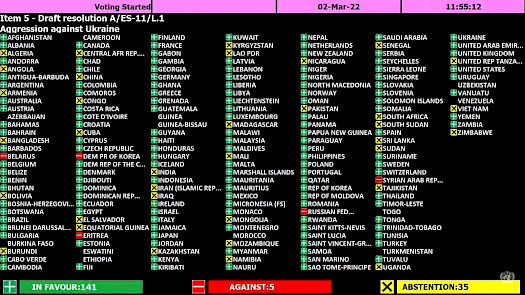 Israel, America’s strongest ally in the Middle East, was also not easy to convince. It effectively shares a northern border with Russia in the form of Syria. It needs Russia’s tacit approval to bomb Iranian targets there. Israel had also hoped Russian sanctions would derail the JCPOA negotiations with its archenemy, Iran. It may have gotten its wish for now. The Biden administration, worried about rising inflation, wanted the Iran deal badly for several reasons which most likely included the flow of Iranian oil once sanctions were lifted as part of the agreement. It must be frustrating for the US, after providing a decades-long security umbrella for Israel, that it didn’t buy unconditional loyalty.
Israel, America’s strongest ally in the Middle East, was also not easy to convince. It effectively shares a northern border with Russia in the form of Syria. It needs Russia’s tacit approval to bomb Iranian targets there. Israel had also hoped Russian sanctions would derail the JCPOA negotiations with its archenemy, Iran. It may have gotten its wish for now. The Biden administration, worried about rising inflation, wanted the Iran deal badly for several reasons which most likely included the flow of Iranian oil once sanctions were lifted as part of the agreement. It must be frustrating for the US, after providing a decades-long security umbrella for Israel, that it didn’t buy unconditional loyalty.
Venezuela is an interesting case. It has endured US sanctions since the Obama administration and has been accepting Russian military help for years. The Maduro government was in full support of Russian invasion of Ukraine but has gone quiet since the US has recently engaged in behind-the-scenes diplomacy, presumably to get Venezuelan oil flowing into the market.
As far as the “Global South” goes, the reaction was mixed. Current public opinion in many countries is critical of the west’s behaviour in the post-cold war period. Think Iraq, Afghanistan, and Libya. The frustration around world powers occasionally breaking the rules that they impose on others is understandable. One can imagine that some are quietly relishing seeing the west’s nose bloodied for a change.
All this “realpolitiking” is enough to make one’s head hurt.
It would be naive to think we live in a world where separating right from wrong is what motivates geopolitical behaviour. But international relations don’t leave much room for idealism. If you apply empathetic analysis and put yourself in the shoes of world leaders, the constraints they face are complex. That’s all fine and well, but history has shown us the dangers of allowing a powerful country to invade another weaker country without reason, causing both massive destruction of property and loss of life. It behoves all of us in the global community to try and put our self-interest aside for a moment and condemn these senseless acts of war.





